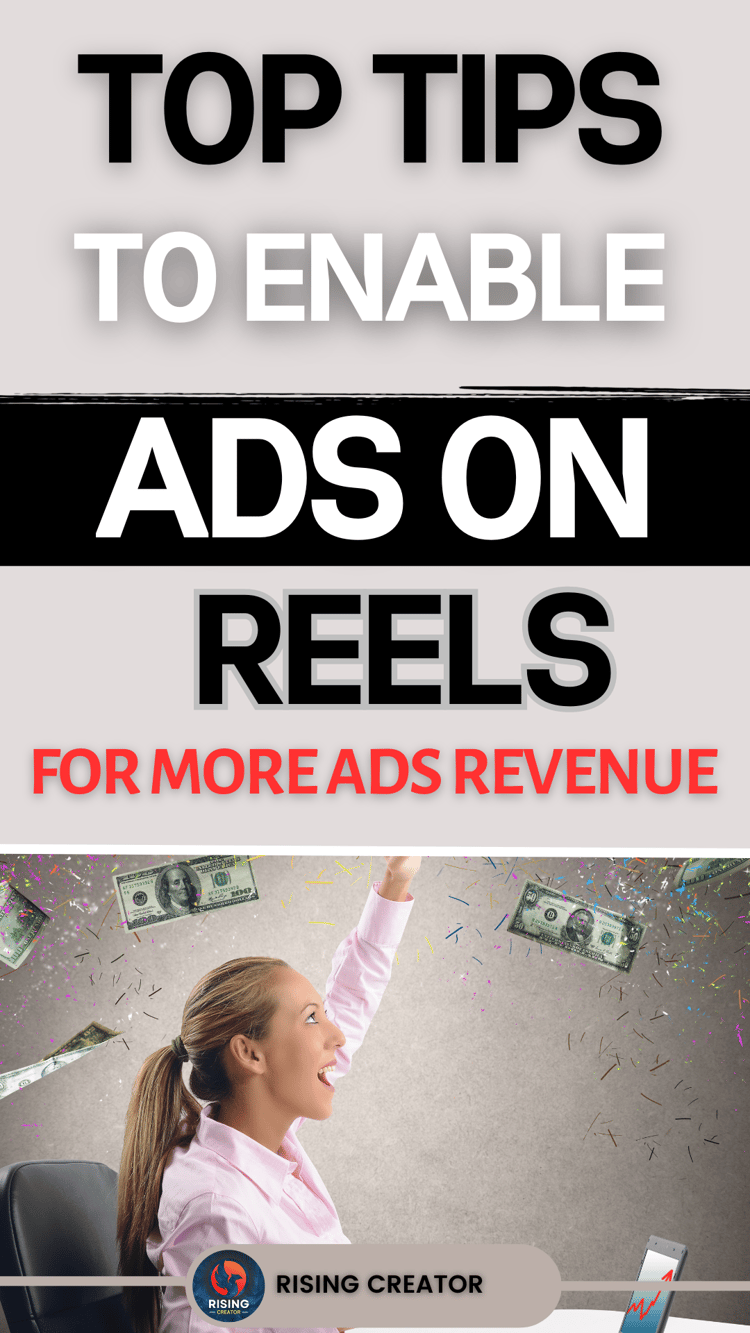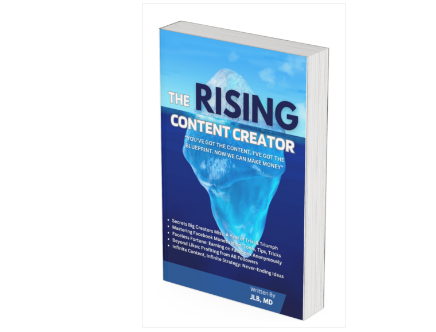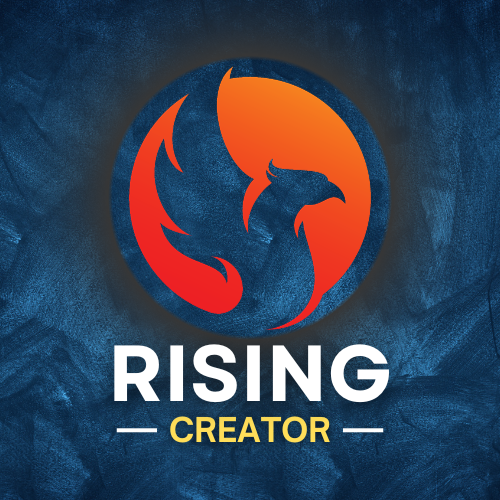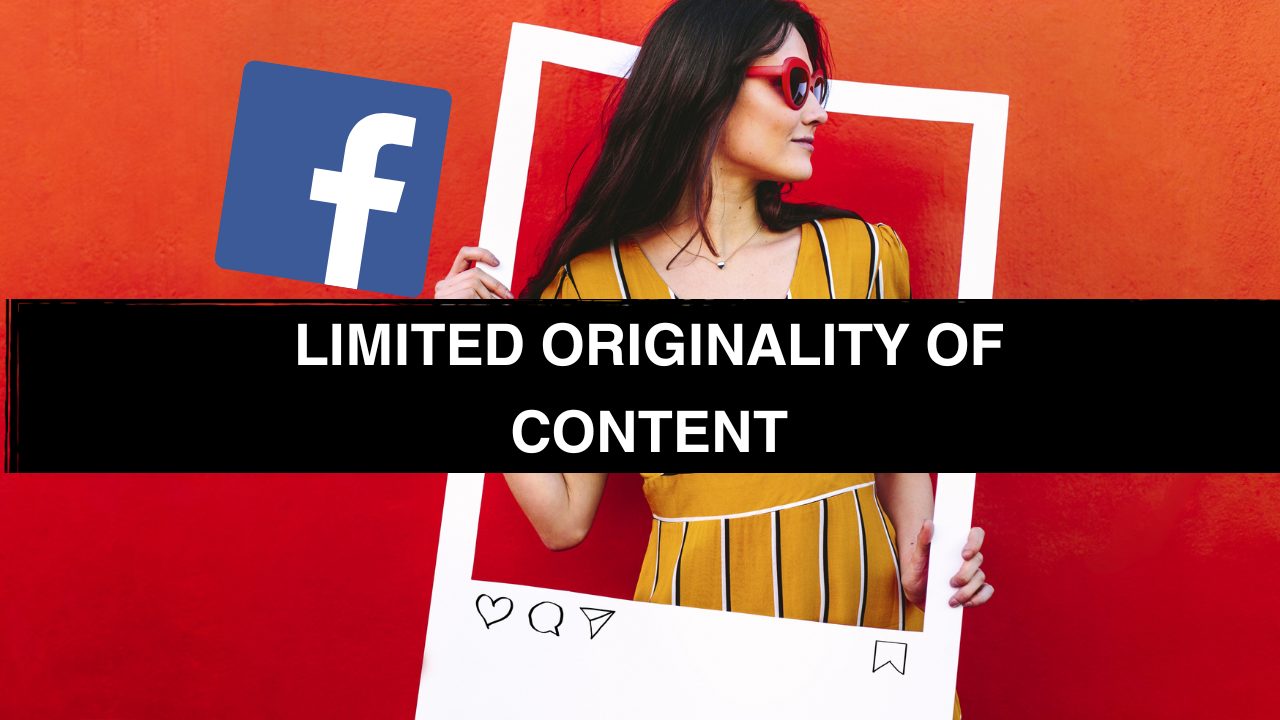Limited Originality of Content Guidelines on Facebook 2024: A Game-Changer for Creators
Facebook introduces game-changing "Limited Originality of Content" guidelines that prioritize original, meaningfully enhanced material. Discover strategies to create engaging, compliant content that maximizes reach and monetization on the platform.
As Facebook's platform continues to evolve, staying ahead of the curve is crucial for content creators and businesses looking to maximize their reach and monetization potential.
In 2024, Facebook is doubling down on its efforts to promote authentic and engaging content by introducing new guidelines for content originality.
These guidelines, known as the "Limited Originality of Content" guidelines, aim to encourage creators to produce original, high-quality content or meaningfully enhance existing materials.
By doing so, Facebook hopes to provide its users with a rich and diverse content ecosystem that fosters genuine connections and elevates the overall user experience.
In this comprehensive article, we'll explore what qualifies as original content, what constitutes meaningful enhancement, and the potential consequences of non-compliance. Whether you're a seasoned content creator or a business owner looking to leverage Facebook's platform, this article will equip you with the knowledge and strategies you need to thrive in 2024 and beyond.
What Constitutes Original Content on Facebook?
According to Facebook's guidelines, original content refers to any videos, images, text, or other media that is produced by the same person or entity posting it. This can include:
- New episodes, clips, or trailers from a show produced by the creators, talent, or network.
- Vlogs created by individual content creators or influencers.
- Content filmed or created by the publisher, such as behind-the-scenes footage or original interviews.
- News coverage with anchors or reporters from the news organization.
Facebook prioritizes original content as it promotes authenticity, creativity, and a diverse content ecosystem. By consistently producing original content, creators and publishers can expect the highest distribution and monetization opportunities on the platform.
Related Article: The Ultimate Guide to Discovering Low Competition Hashtags on Facebook
Understanding Meaningfully Enhanced Content
While Facebook encourages the creation of original content, the platform recognizes that not everyone has the resources or ability to create everything from scratch. In such cases, Facebook allows for the use of sourced or licensed footage, provided that it is "meaningfully enhanced" and adds value to the original production.
Here are some examples of what Facebook considers meaningful enhancement:
1. Adding Commentary or Analysis
Incorporating commentary or analysis through a persona, voice narration, or on-screen graphics throughout the video can significantly enhance the value of the content. For example, a sports page could add expert analysis or insights to highlight reels, providing viewers with a deeper understanding of the game.
2. Consistent Editing
Consistent editing that adds new information or context, such as compiling clips to tell a story or creating top 10 lists with product details, can qualify as a meaningful enhancement.
3. Educational Overlays
Adding educational graphics, statistics, or data visualizations that provide deeper insights or context to the sourced content can be considered meaningful enhancement. For instance, a fitness page could overlay exercise form cues or muscle group explanations on workout videos.
4. Expert Commentary
Inviting subject matter experts or industry professionals to provide in-depth commentary, analysis, or behind-the-scenes perspectives throughout the video can add significant value to the content.
5. Interactive Elements
Incorporating interactive elements like polls, quizzes, or call-to-action prompts that encourage audience engagement and participation can enhance the viewer's experience and add value beyond passive viewing.
6. Localization
Translating or subtitling the sourced content into different languages, along with cultural context or localized commentary, can make it more relevant and accessible to diverse audiences.
7. Storytelling Narratives
Weaving sourced clips or footage into a cohesive storytelling narrative with a clear beginning, middle, and end can create a more immersive experience for viewers.
8. Remix or Mashup
Creatively remixing or combining multiple sourced clips or elements into a unique, original compilation that offers a fresh perspective or highlights specific themes or concepts can be considered meaningful enhancement.
9. Educational Guides
Using sourced content as a starting point to create comprehensive educational guides, tutorials, or how-to videos by adding step-by-step instructions, tips, or best practices from your own expertise can provide significant value to viewers.
The key factor in determining meaningful enhancement is whether the added elements genuinely contribute to the viewer's understanding or experience. Simple cosmetic changes, such as adding music or altering playback speed, do not qualify as meaningful enhancement.
Meaningfully enhanced content is the equivalent of a Faceless YouTube Channel. However, Facebook is more strict about this, and its detection tool through the algorithm for unoriginality is more aggressive and sensitive than YouTube.
I am using Meaningfully Enhanced Content on Facebook and earning $5000+ per month.
Yes! I don’t even show my face in front of the camera.
Related article: Affiliate Marketing on Monetized Facebook Reels 2024

Avoiding Limited Originality Flags
Facebook takes a firm stance against content that violates its limited originality guidelines. Pages or profiles that consistently post content with limited originality may face reduced distribution, limited access to monetization tools, or even penalties.
Here are the three main behaviors that can lead to limited originality flags:
1. Limited Editorialization
Posting videos or content created by others with minor, non-meaningful enhancements like meme bars, logos, or background music can be flagged as having limited originality.
2. Aggregating
Compiling and posting content from multiple sources without meaningful enhancements or added value can also lead to limited originality flags.
3. Duplicative Content
Posting content that already exists on Facebook and to which the page or profile had no meaningful role in creating can be considered duplicative content and may be flagged.
To avoid these flags, it's essential to regularly post content that you or your team created or to make meaningful enhancements to any sourced or licensed material. Additionally, be mindful of copyright and intellectual property rights when using third-party content.
Related Article: How ChatGPT Can Help You Achieve Faster Monetization on Facebook
Steps to Ensure Compliance with Facebook's Limited Originality of Content Guidelines
1. Understand the Source Material
Thoroughly review the source material and any licensing agreements or terms of use associated with it. Ensure that you have the necessary permissions to use and modify the content, and familiarize yourself with any restrictions or limitations.
2. Focus on Substantial Additions
Facebook's guidelines emphasize the need for "meaningful enhancements" that add significant value to the original content. Aim to incorporate substantial additions, such as in-depth commentary, educational overlays, or interactive elements, rather than just cosmetic changes or minor edits.
3. Provide Context and Attribution
When using sourced material, it's essential to provide proper context and attribution to the original creators or rights holders. This can be done through on-screen credits, verbal acknowledgments, or written descriptions in the post or video description.
4. Avoid Duplication
Facebook frowns upon duplicative content, which refers to posting content that already exists on the platform without any meaningful enhancements. Ensure that your modifications significantly transform the sourced material into a unique and valuable piece of content.
5. Seek Legal Guidance
If you're unsure about the extent of modifications allowed or have concerns about potential copyright infringement, it's advisable to seek guidance from legal professionals familiar with intellectual property rights and fair use principles.
6. Review Facebook's Guidelines Regularly
Facebook's policies and guidelines are subject to updates and changes. Make sure to regularly review their official guidelines, including the Partner Monetization Policies and Intellectual Property policies, to stay informed about any revisions or clarifications.
7. Test and Monitor
Before publishing your enhanced content, consider testing it with a small audience or within a private group to gauge feedback and ensure compliance. Additionally, monitor the performance and engagement of your enhanced content to identify any potential issues or flags raised by Facebook's algorithms.
By following these steps and maintaining a commitment to creating truly valuable and transformative content, you can navigate Facebook's limited originality guidelines while providing an engaging and enriching experience for your audience.
P.S. Don’t forget to check my 25-chapter 242-page ebook on how to monetize your Facebook Presence.

The Rising Content Creator Blueprint
Related Article: How to Become a Rising Creator on Facebook
Final Thoughts
As Facebook continues to prioritize authentic and engaging content, adhering to its limited originality guidelines is paramount for success on the platform. By consistently creating original content or meaningfully enhancing sourced material, you can maximize your reach, build a loyal audience, and unlock monetization opportunities.
Remember, these guidelines are designed to enhance the user experience and foster a diverse content ecosystem. Embrace creativity, add value, and stay compliant - your content strategy will thrive, and your audience will thank you for it.
FAQs on Limited Originality of Content Guidelines 2024
What happens if my page or profile is flagged for limited originality?
If your page or profile is flagged for posting content with limited originality, you may face reduced distribution and limited access to monetization tools on Facebook. In severe cases, penalties or restrictions may be imposed.
Can I appeal a limited originality flag?
Yes, Facebook allows you to file an appeal if you believe your page or profile has been incorrectly flagged for limited originality. However, they recommend posting a significant amount of original or meaningfully enhanced content before requesting an appeal to demonstrate your compliance with their guidelines.
Do limited originality guidelines apply to copyrighted or licensed content?
Yes, the limited originality guidelines can still apply to copyrighted or licensed content. Even if you have permission to use the material, you must meaningfully enhance it to comply with Facebook's policies.
What qualifies as a meaningful enhancement for licensed or sourced content?
Meaningful enhancement can include adding commentary, analysis, or new information through voiceovers, on-screen graphics, or consistent editing that provides additional context or value to the viewer. Simple cosmetic changes or minor edits do not qualify.
How often should I post original or meaningfully enhanced content?
While there is no specific requirement, Facebook recommends posting original or meaningfully enhanced content regularly to maintain a strong presence and maximize distribution and monetization opportunities on the platform.



Comments ()